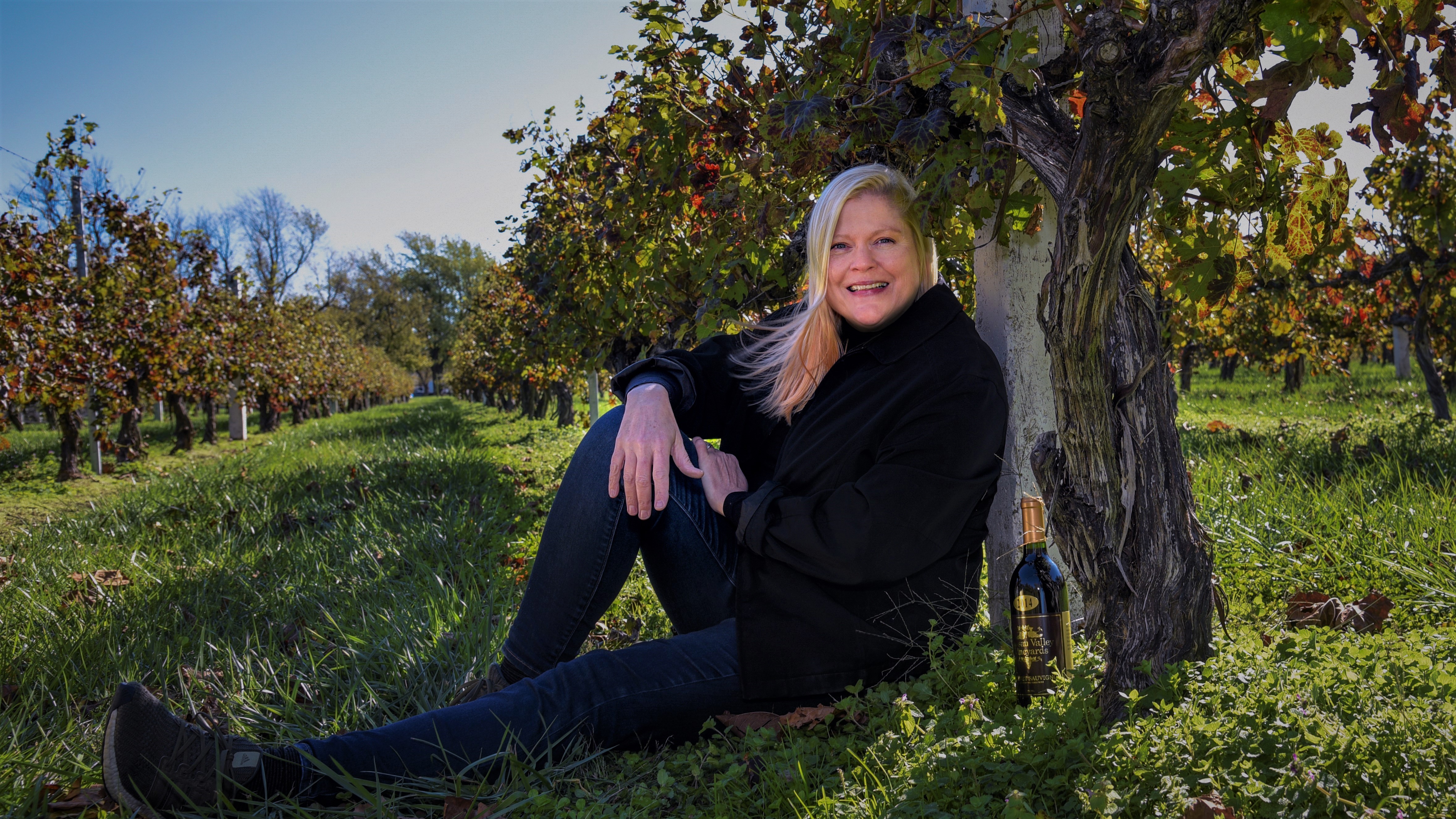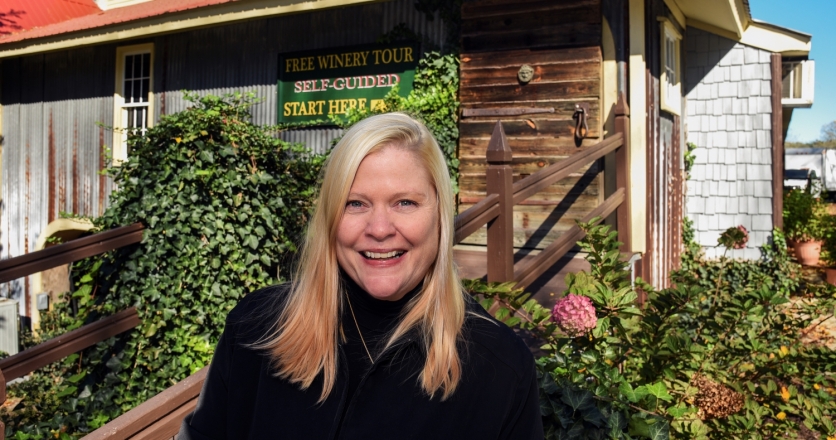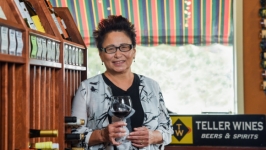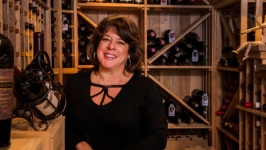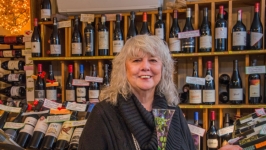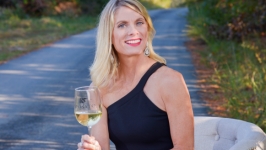Peggy Raley-Ward, Nassau Valley Vineyards: The Doyenne of Delaware Winemaking
Whether she’s storming Legislative Hall in Dover or belting out a jazz standard, Peggy Raley-Ward stands out in a crowd. The petite blond with the big voice is an accomplished performer. She also owns Nassau Valley Vineyards in Lewes, which she started despite antiquated legislation that prohibited on-site sales. Today, the vineyard makes at least 14 wines and is a coastal tourist destination.
Raley-Ward, who was in her 20s when she planted her first vine, does not lack for moxie.
“Peggy Raley is one of the great coastal Delaware arts-centric entrepreneurs,” agrees Sam Calagione, founder of Dogfish Head Craft Brewery. “She was a leader on both the regulatory and marketing front for artisanal producers, and she interweaves her passion for good eating, good drinking, good music and good living seamlessly.”
A Sussex County native with roots that trail back two centuries, Raley-Ward grew up on her father’s farm. The apple did not fall far from the tree. Her father, Robert “Bob” Raley, was a jack-of-all-trades and one of the first registered landscape architects in the state. He also sold real estate, founded Holly Lake Campground, raised chickens, and tilled some 600 acres.
At American University, Raley-Ward majored in drama and double-minored in Spanish literature and English literature. A “poor, struggling” student, she says, she needed a job. Since she was handy with a camera, she landed a gig with the magazine Friends of Wine, published by Les Amis du Vin International, a wine society based in Washington, D.C.
The young student knew nothing about wine, but she learned quickly. “I got thrown into the wine world with the top wine writers in the world, drinking the best wine in the world,” Raley-Ward says. “My education was not normal; I had the incredible opportunity to learn this industry from the people who truly, truly are the experts. I fell hopelessly in love with the wine business.”
It was the early 1980s, and the Les Amis du Vin had 500 chapters in the U.S. and another 67 abroad. As a national chapter coordinator, Raley-Ward traveled across the country and to Europe. (One of the more active groups, she recalls, was in Idaho.)
With her newfound knowledge, Raley-Ward approached her father about putting a vineyard on their land. He bit, and in 1987, when she was in barely in her 20s, they started a “farm winery” on nearly 3 acres.
The Raleys were putting the cart before the horse. At that time, producers had to go through a licensed alcoholic beverage distributor. The undeterred entrepreneur drafted legislation and knocked on decisionmakers’ doors. “They asked: ‘Who do you work for?’ When told them, ‘Myself,’ there was a horror-stricken look. ‘You can’t do that! It’s too hard.’”
Her efforts in Dover bore fruit. The law allowing direct on-site sales passed. In 1991, Gov. Michael N. Castle and members of the Delaware Assembly came to the groundbreaking ceremony for the winery. (For its first wine, Nassau Valley Vineyard sent the harvest to Chaddsford Winery in Chadds Ford, Pennsylvania.) The vineyard officially opened in 1993.
Today, the vineyard grows traditional European varietals—Cabernet Sauvignon, Merlot, Chardonnay, Cabernet Franc and Petit Verdot—on just over 8 acres. “We utilize everything we grow; it goes directly into our wine production,” she says. “If you look at small wineries all over Europe, that’s common.”
For hybrid wines, she contracts with wineries in the Mid-Atlantic area. “There are [area] wineries that buy West Coast grapes, and my question is: “Why did you open a winery on the East Coast?’ I absolutely will not use West Coast fruit.”
Raley-Ward, who hosts a Sunday farmers market at the winery during the summer season, is a fan of supporting local businesses. But that’s not the only reason why she buys area fruit. Growing conditions on each coast are drastically different. “In California, they’re growing grapes in a desert, and if they were not irrigated, they would not live,” she said. “Both the East Coast and Europe have to deal with a very persnickety entity called humidity.”
Consequently, comparing a French red to a voluminous high alcohol Napa red is not a fair comparison. “Wine is liquid geography,” says Raley-Ward, who is not a fan of Wine Spectator’s 100-point scale. “You can’t pigeonhole it into one category; they’re all different.”
Today, she’s says, there’s less stigma about being a female winemaker and more about making a Delaware wine. “People assume that if it’s locally made, it can’t be good,” she says. She has more than 600 medals from international competitions to prove them wrong.
“Peggy has never received the appreciation she deserved because she was the only commercial winery in Delaware for decades, and a downstate winery at that,” says Roger Morris, who writes for international wine publications located in the United States, England and Germany. “Making very good wines, as she does, somewhat in isolation from other winemakers is a very difficult task.”
Fortunately, Raley-Ward loves to educate people about wine and its heritage. She feels the same way about music. “You can be modern and innovative, but you can’t tear down the foundation and have no respect for the people who carried the water the whole way.”
With husband and performing partner Sherman Ward—aka Eddie Sherman—she founded the True Blue Jazz Festival. Held annually in Rehoboth Beach, the festival focuses on “straight-ahead” American jazz.
Between the festival and the winery, Raley-Ward is leaving a legacy of her own. Says Morris: “Peggy has been instrumental in changing Delaware laws to be more friendly to winegrowing and in helping lawmakers realize that vineyards and wineries can be a very important economic asset to the state, especially in tourism.”
Entertaining Tips
Determining what to serve at a holiday feast can be challenging. Often, there are multiple courses and a plethora of side dishes. Nassau Valley Vineyard’s Meadow’s Edge, a white wine, “has enough complexity to stand up to all the dishes,” says Peggy Raley-Ward, owner of the Lewes-area winery. “It has a lot of dimension to it.” An initial honey-sweetness gives way to a clean finish. For a party, she recommends unoaked Chardonnay. When Chardonnay is aged in oak barrels, it takes on a toasty flavor that many people don’t like. She suggests the award-winning Naked Chardonnay from her Nassau Valley Vineyards, which isn’t aged in wood barrels. “It’s a nice, crisp, dry wine,” she says.
Nassau Valley Vineyards
32165 Winery Way, Lewes, DE
302.645.9463, Facebook


